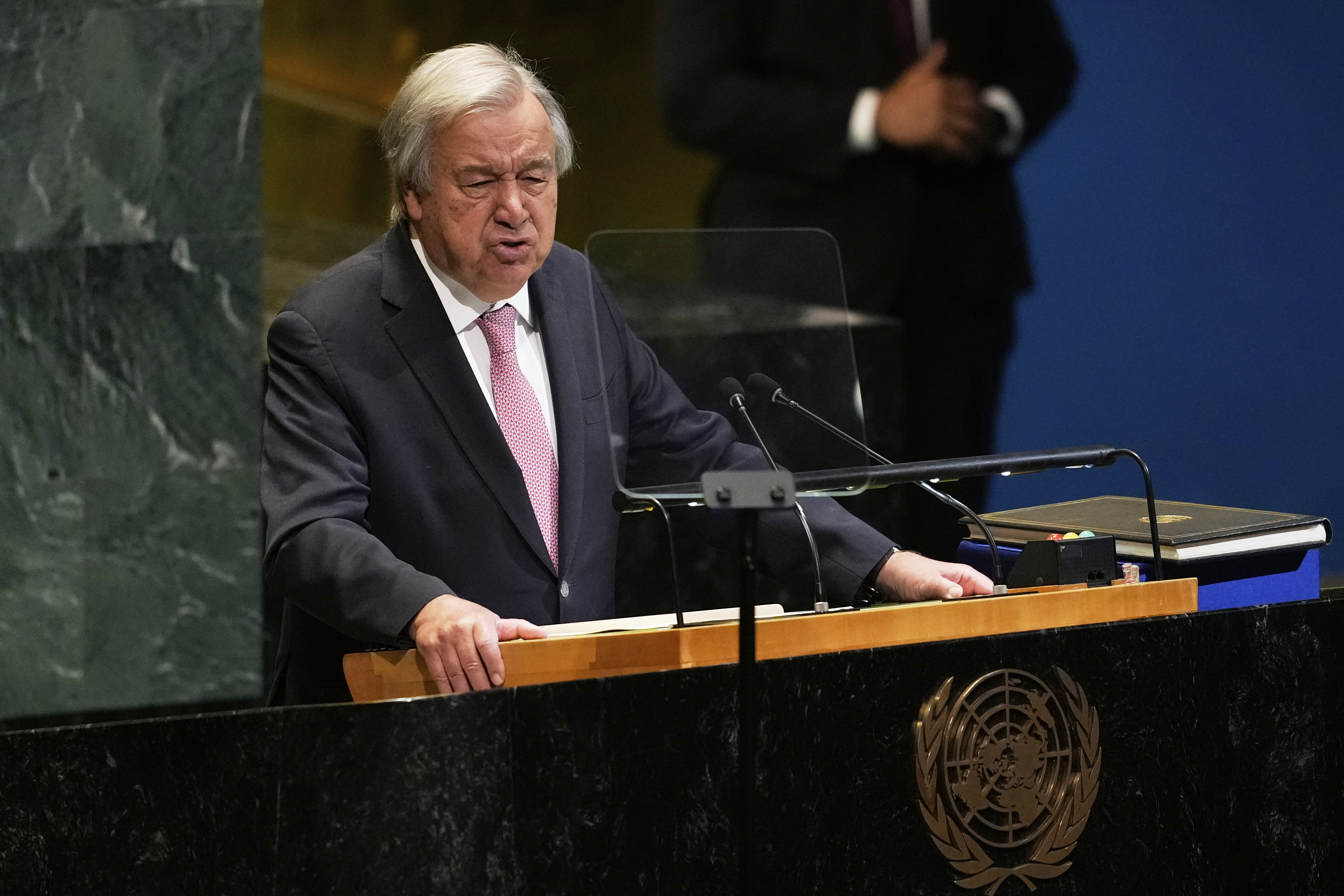
UNITED NATIONS - UN Secretary-General Antonio Guterres on Tuesday urged member states to rebalance military spending and development priorities.
"The evidence is clear. Excessive military spending does not guarantee peace. It often undermines it -- fueling arms races, deepening mistrust, and diverting resources from the very foundations of stability," the UN chief said at the launch of the new report titled "The Security We Need: Rebalancing Military Spending for a Sustainable and Peaceful Future."
"A more secure world begins by investing at least as much in fighting poverty as we do in fighting wars," Guterres said.
ALSO READ: Global security arrangements 'unravelling', UN chief warns nuclear disarmament conference
Global military spending surged to a record high of $2.7 trillion in 2024, nearly 13 times the amount of official development assistance from the world's wealthiest nations and 750 times the UN regular budget in 2024, he said.
At the same time, only one-fifth of Sustainable Development Goal (SDG) targets are on track. The financing gap is growing, and so is the cost of inaction, he warned.
The report is a call to rethink priorities and to rebalance global investments toward the security that the world truly needs, Guterres said.
Global military spending is projected to reach $4.7-6.6 trillion by 2035 if current trends persist. The massive diversion of resources toward militarization poses a serious threat to humanity's future by undermining sustainable peace and development, according to the report.
Even a small fraction of military spending can make a big difference in people's lives, said the report. Less than 4 percent of the 2024 global military spending is needed annually to end hunger by 2030. A little over 10 percent can fully vaccinate every child. With $5 trillion, the world could fund 12 years of quality education for every child in low- and lower-middle-income countries. Reinvesting 15 percent of the 2024 global military spending is more than enough to cover the annual costs of climate change adaptation in developing countries.
READ MORE: Nations at UNSC criticize Israel’s plan of Gaza City takeover, warns of ‘calamity’
UN High Representative for Disarmament Affairs Izumi Nakamitsu said the report confronts a stark reality: rising global military spending is not delivering peace and will not achieve sustainable peace, but rather undermines the shared vision for a just, sustainable and equitable future.
"The challenge before us is not to merely reverse the trend of escalating military spending and shrinking development finance, but to recommit to multilateralism and diplomacy. We must integrate peace and development agendas and recalibrate global financial priorities," she said at the launch of the report.
The call to action is clear: recommit to multilateralism, invest in diplomacy and preventative efforts to de-escalate tensions, manage conflict and restore trust. Global and regional confidence-building measures must be prioritized to address the underlying drivers of rising military expenditure. Disarmament instruments that protect civilians must be safeguarded. Military spending should be at the heart of disarmament discussions and scrutinized through the lens of human impact. Civil society, including youth, academia and local communities, has a vital role to play, she said.
"Rebalancing global priorities is not optional. It is an imperative for our survival," she said. "We need a new vision of security -- human-centered and rooted in the UN Charter, a vision that safeguards people, not just borders, and prioritizes institutions, equity and planetary sustainability."
UN Development Programme Acting Administrator Xu Haoliang said investment in security and investment in development are not a zero-sum game, both domestically and internationally. Development, peace and security, and human rights are interlinked and mutually reinforcing. Investment in development is investment in peace, stability and prosperity.
ALSO READ: UN chief condemns Israel's approval for new settlements in West Bank
The surge in global military spending is not predominantly directed at restoring public safety in contexts of acute violence and state fragility, and tends to come at the expense of people's security worldwide, particularly in developing countries, said Xu.
One billion US dollars in military spending can create about 11,200 jobs, but can create about 17,000 jobs if invested in clean energy and about 27,000 jobs in education, he said, citing the report.
The report was produced at the request of UN member states to analyze the impact of the global increase in military expenditure on the achievement of the SDGs as one of the key outcomes of the 2024 Summit of the Future.


